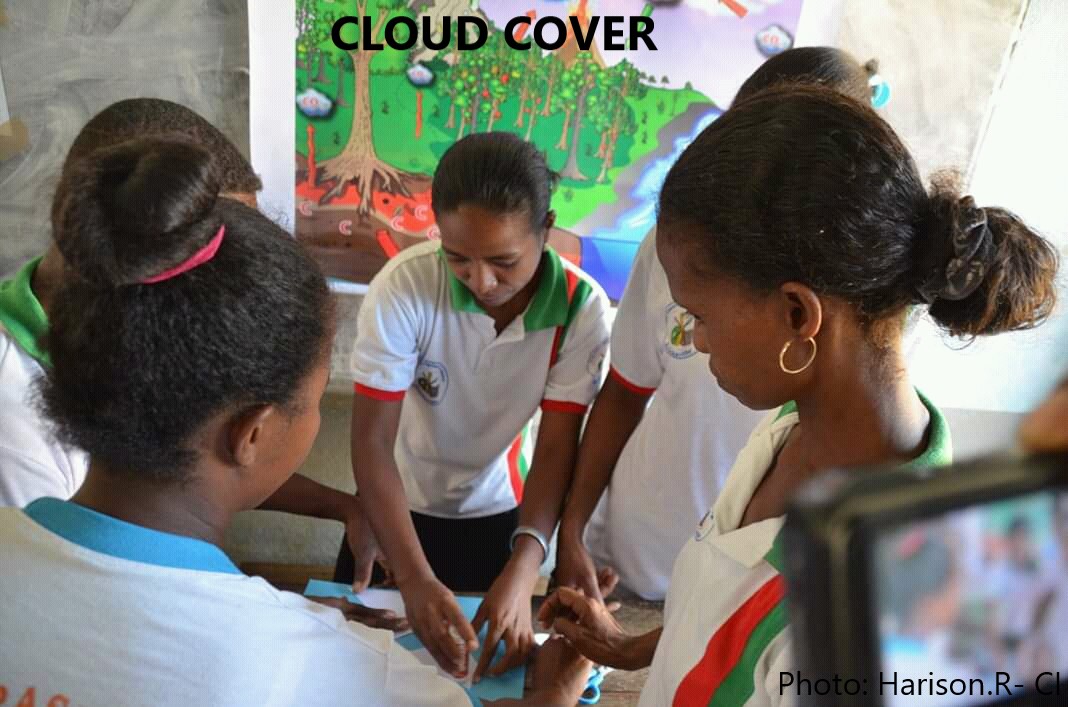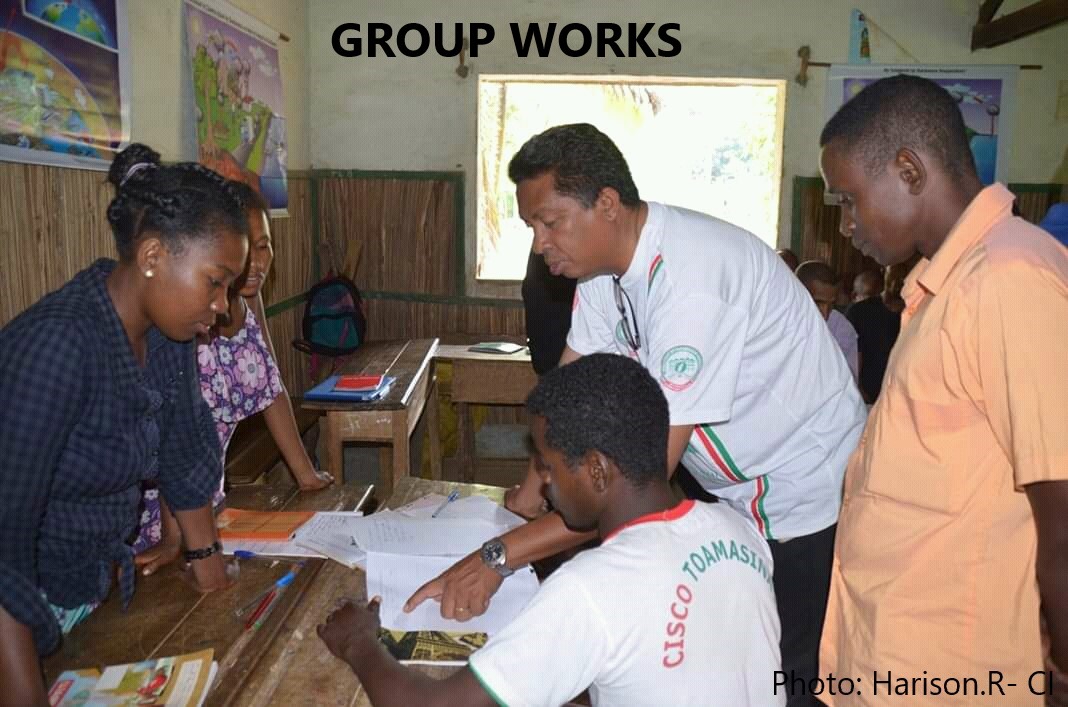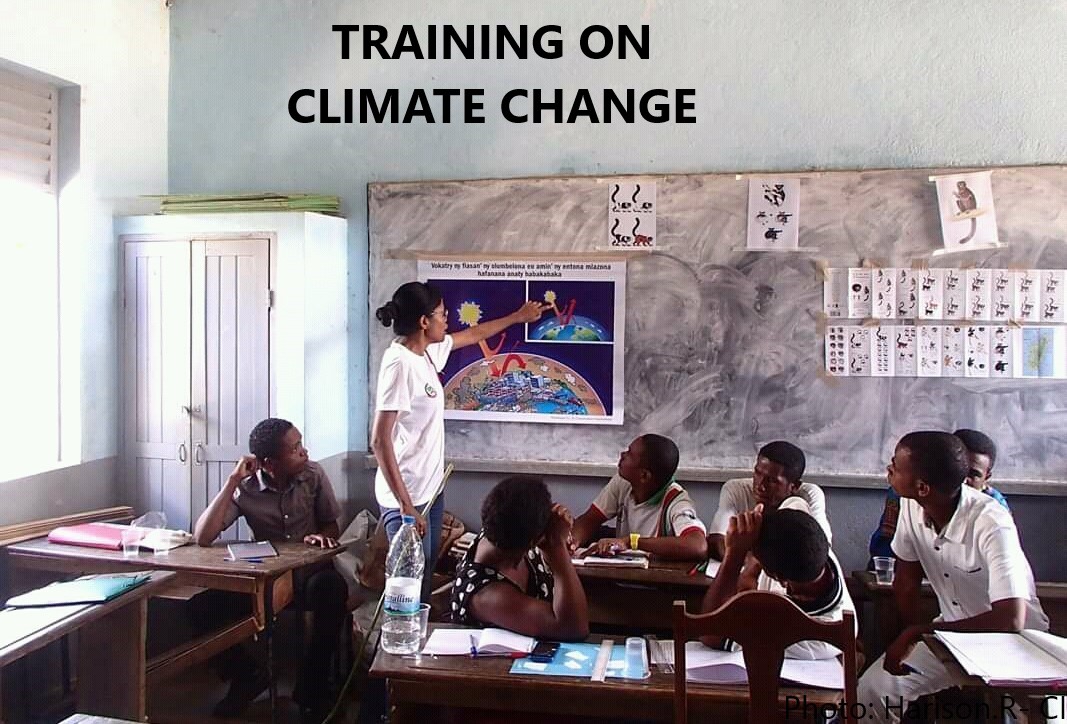Stars and STEM Stories
GLOBE Training in Madagascar Focuses on “Working Together for Future Generations”

In early 2019, GLOBE Madagascar signed a collaboration agreement with Conservation International (CI). The collaboration is based on the preservation of lemurs and the natural forest in the eastern part of Madagascar. CI works in over 30 countries – and, now, Madagascar – to help build a healthier planet. CI has been working on a variety of programs in Madagascar since 1980, including biodiversity protection, environmental policy, and community programs.
After signing on to collaborate with CI, GLOBE Madagascar organized a training designed to integrate GLOBE protocols (including those related to cloud cover, Earth as a system, and phenology) into more schools throughout the country. The training also covered the concept of climate change, as well as the education of teachers regarding sustainable development in relation to lemurs. The training activities also focused on training teachers and school directors in preschools and primary and secondary schools within the peripheral zone of the protected forest corridor in the east part of Madagascar.


Madagascar is world-famous for its lemurs, home to nearly 60 "taxa" of lemurs (species, subspecies, and populations from 33 species across five families and 14 genera. All of these species are endemic to Madagascar, giving the country the second highest number of primate species after Brazil, which has 77 species. Lemurs are found in virtually all of Madagascar's ecosystems and share some of the social and behavioral characteristics of monkeys (such as forming social groups, eating fruit and vegetation, and being active during the day).

Participants said the training was an opportunity to expand GLOBE activities in the country and to encourage more schools to join The GLOBE Program. The goal was, specifically, to begin working together for future generations. The trainings were designed to support GLOBE’s vision of collaborating in order to better understand, sustain, protect, and improve the local environment. Thank to this effort, GLOBE students in the area are learning more about their local environment and its issues – which, in turn, leads them to think about regional and global environmental problems, such as climate change. They are now focused on taking greater responsibility at their local local level to deal with critical environmental and habitat issues, and to enter data into the GLOBE database so that everyone can freely learn alongside them.






